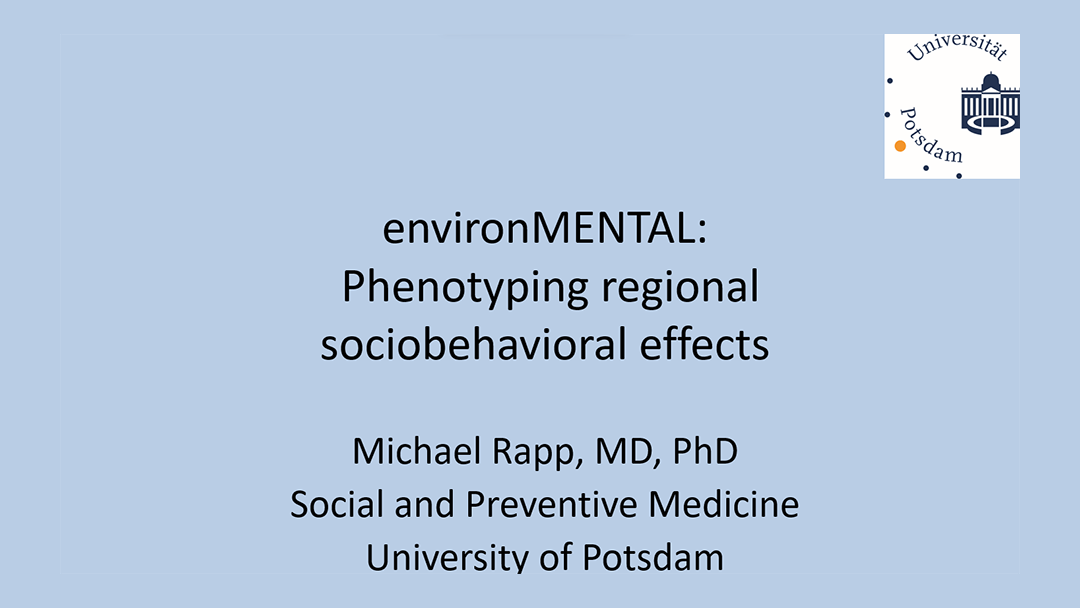Institute of Medical Psychology and Medical Sociology, University Medical Center Schleswig-Holstein, Kiel University, Kiel, Germany Department for Social and Preventive Medicine, University of Potsdam, Potsdam, Germany
Personal and subjective perceptions and individual’s experiences (e.g., feelings, thoughts, behaviors) are key factors for mental health and modified by environmental contexts. While on the one hand, various aspects of, for example, behaviors are captured by standard single questionnaires and neuropsychological assessment batteries, representing domains and behavioral and psychological functions, it is, on the other hand, also important to capture behaviors in daily life and in an ecologically valid way. In our talk, we illustrate assessment-based systems and procedures that span along the environment and its consequences for and relation to MENTAL health. These include behavioral characterization schemes such as the Research Domain Criteria (RDoC) framework, which has changed the conversation in mental health research since its initiation in 2010 and show contextual effects on respective RDoC domains. We will further introduce the delivery of ecological momentary assessments (EMAs) on mobile devices, including a mobile sensing framework, as state-of-the-art methodology for people’s everyday real-world behavior, and show how this can increase sensitivity of assessments, using information over time and across contexts.


